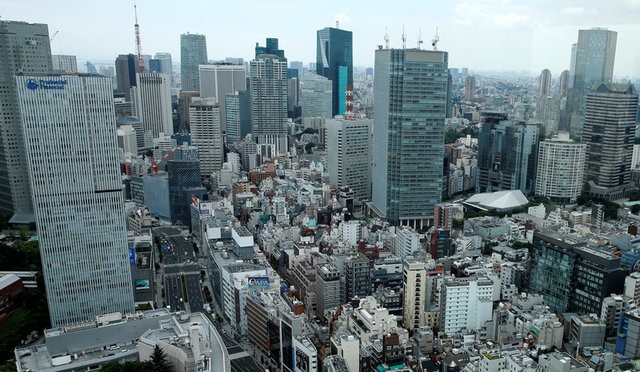By Tetsushi Kajimoto
TOKYO (Reuters) - Less than a third of Japanese firms plan to boost shareholder returns this financial year although nearly half have seen cash on hand climb, a Reuters poll found, underscoring a sharp slowdown in share buyback and dividend growth.
As part of major drive to improve corporate governance and make Japanese companies more attractive to foreign investors, Prime Minister Shinzo Abe has urged companies to either return more to shareholders or boost capital spending.
That push has yielded strong results with combined shareholder returns for firms listed on the Tokyo bourse's main board soaring more than 20 percent in each of the three years to end-March 2016 before gains tapered to 2.2 percent in the past financial year, according to Goldman Sachs (NYSE:GS) data.
Those gains notwithstanding, Japan Inc's returns to shareholders trend far below those of their peers in the West. But any investor hopes for a further big jump in shareholder returns may have to wait.
The Reuters Corporate Survey, conducted June 30-July 13, showed 69 percent of companies plan to keep shareholder returns flat this year and only 29 percent plan to boost them. Two percent plan to cut returns.
"We are saving ample cash on hand against a market crash that is bound to happen sooner or later," wrote a manager at a real estate firm.
While a number of firms said they planned to use increases in cash on capital spending, the reply was echoed by many others who cited the need to set aside funds for "uncertainties" - illustrative of what is widely seen as an ingrained bias towards saving rather than spending for Japanese firms.
The apparent lack of strong momentum for a further jump in shareholder returns comes despite cash and deposits for Japanese non-financial firms surging to a record 255 trillion yen ($2.3 trillion) as of end-March, according to central bank data.
That was up 5.1 percent from a year earlier and represents a leap of 30.9 percent since the end of 2012, shortly after Abe took office.
Some 45 percent of Japanese firms said that cash on hand had risen in the past financial year, the Reuters survey showed. Around a quarter said that cash had jumped by 10 percent or more.
The need to save for an uncertain future was the most mentioned reason for the increase in cash during the last financial year, cited by 31 percent of companies. A lack of capital spending needs was cited by 28 percent. Firms were allowed to pick multiple reasons for the rise in their replies.
According to Goldman Sachs, the ratio of shareholder returns – dividends plus buybacks – to operating cash flow stood at a median 17.5 percent for Japanese firms in 2015. That compares to 50.6 percent in North America and 36.9 percent in Western Europe.
Kengo Nishiyama, a strategist at Nomura Securities, said efforts by Japanese firms to improve corporate governance have only hit the half-way mark. They have the leeway to lift shareholder returns and failing to do so could be counterproductive, he added.
"If they don't let cash circulate through the economy, it will remain stagnant, which will make it harder for firms to find investment opportunities, causing a vicious cycle," said Nishiyama, who reviewed the survey results.
The poll, conducted monthly for Reuters by Nikkei Research, polled 549 big and mid-sized companies, who reply on condition of anonymity. Between 220 and 250 firms answered questions on cash on hand and returns to shareholders.
($1 = 112.1300 yen)

(GRAPHIC: Japan Inc not keen to boost shareholder returns - http://tmsnrt.rs/2tB8joR)